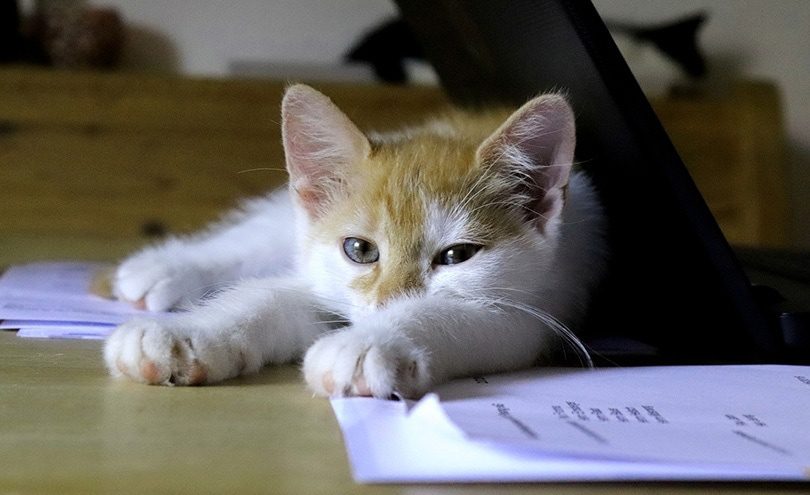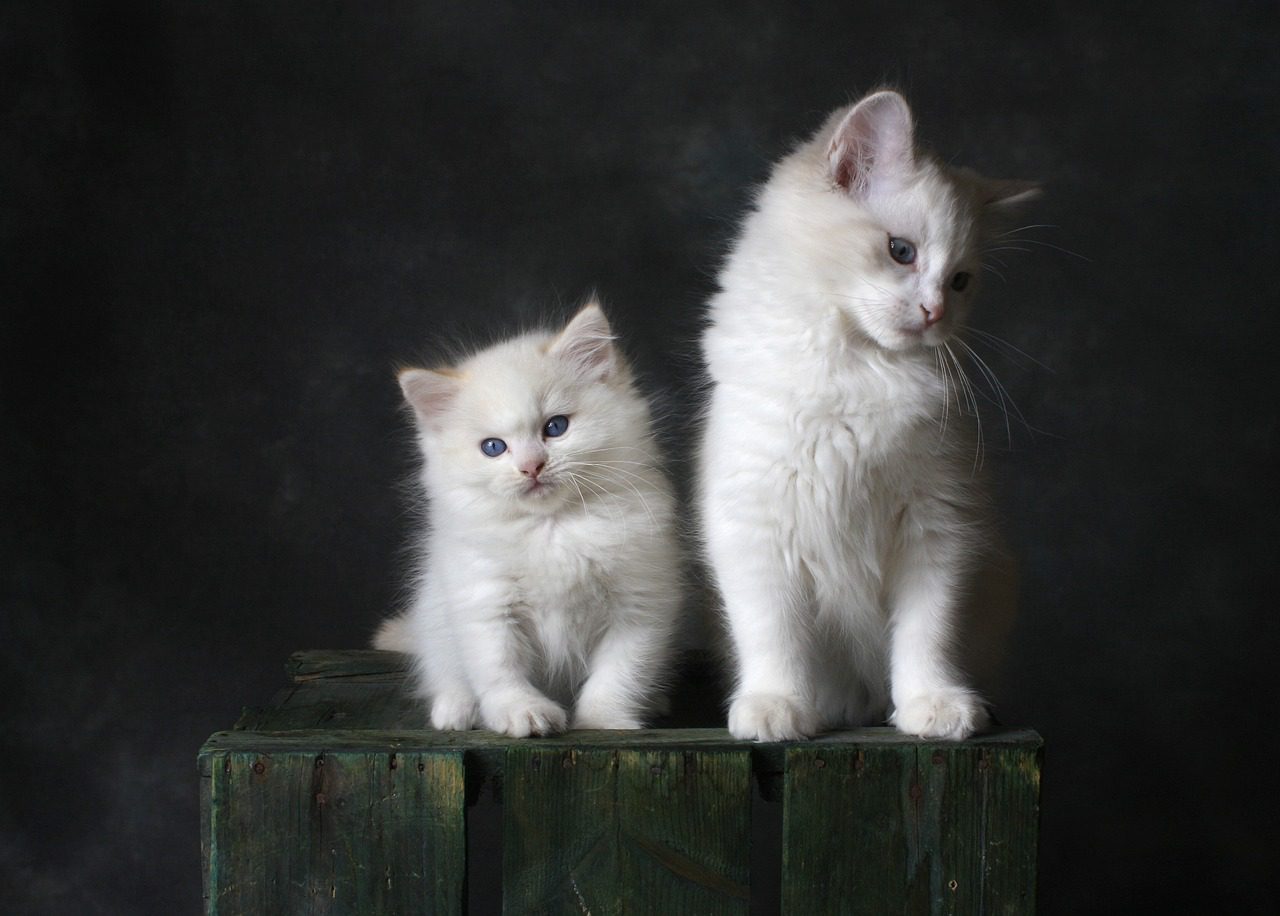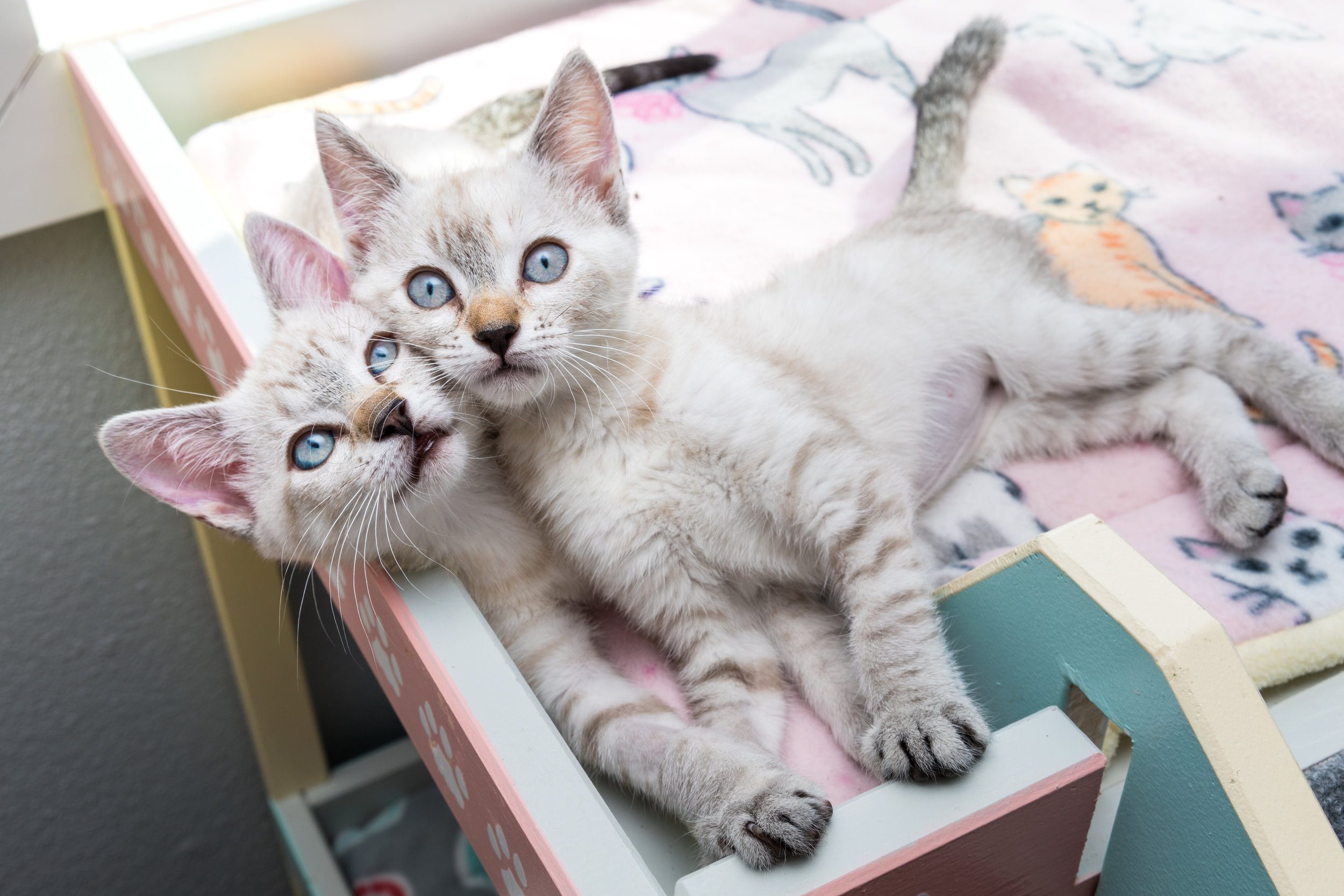Are you tired of your mischievous kitten wreaking havoc around the house? Do you find yourself constantly cleaning up shredded toilet paper or rescuing your favorite pair of socks from their clutches? Well, fret not! Understanding and redirecting bad behavior in kittens can be the key to a harmonious and happy home. By delving into this subject, you'll discover practical techniques that will not only save your sanity but also strengthen the bond between you and your furry friend. So, if you're ready to put an end to the chaos and create a peaceful environment for both you and your mischievous little companion, let's dive into the world of "Kitten Mischief: Understanding & Redirecting Bad Behavior."
Key Takeaways:
- Kittens are naturally curious and playful, which can sometimes lead to mischievous behavior.
- Understanding the root causes of bad behavior, such as boredom or lack of stimulation, is essential for effective redirection.
- Redirecting a kitten's bad behavior involves providing appropriate outlets for their energy and curiosity, such as interactive toys and designated play areas.
- Consistency in training and setting boundaries is crucial for teaching kittens what behaviors are acceptable and unacceptable.
- Positive reinforcement techniques, such as praise and rewards, can be highly effective in encouraging good behavior and discouraging bad behavior in kittens.
Understanding Kitten Mischief: What Does It Mean?
When your kitten engages in mischievous behavior, it means they are being playful or curious. Kittens have a lot of energy and are constantly exploring their surroundings. They may jump on furniture, knock things over, or scratch at things they shouldn't. This behavior is completely normal for kittens and is a way for them to learn about the world around them.
As a responsible pet owner, it's important to understand that kitten mischief is not the same as deliberate destructive behavior. Kittens do not have the same understanding of right and wrong as humans do. They are simply following their instincts and trying to satisfy their natural curiosity.
The Importance of Understanding Your Kitten's Bad Behavior
Understanding your kitten's bad behavior is crucial for several reasons. Firstly, it allows you to differentiate between normal kitten mischief and more serious issues that may require intervention or training. By recognizing what behaviors are typical for kittens, you can avoid unnecessary frustration or punishment.
Secondly, understanding your kitten's bad behavior helps you bond with them better. Instead of getting angry or upset when they engage in mischievous acts, you can approach the situation with patience and compassion. This will create a positive environment for both you and your kitten, fostering a stronger relationship based on trust and understanding.
Redirecting Kitten Misbehavior: Positive Ways to Correct Their Actions
To redirect your kitten's misbehavior in a positive way, there are several strategies you can try:
- Provide appropriate outlets for play: Make sure your kitten has plenty of toys and scratching posts to engage with. This will redirect their energy towards acceptable outlets instead of destructive behaviors.
- Use positive reinforcement: When your kitten behaves well, reward them with treats or praise. This will reinforce good behavior and encourage them to repeat it.
- Distract and redirect: If you catch your kitten engaging in mischief, gently redirect their attention to a more appropriate activity or toy. This will help them learn what is acceptable behavior.
Common Examples of Kitten Mischief to Watch Out For
Kittens can engage in various mischievous behaviors. Some common examples include:
- Scratching furniture: Kittens have sharp claws and may scratch on furniture as a way to mark their territory or relieve stress.
- Jumping on countertops: Curious kittens may jump on countertops to explore or try to reach food.
- Knocking things over: Kittens are known for their curiosity and may knock over objects while investigating their surroundings.
Why Do Kittens Sometimes Behave Mischievously?
Kittens behave mischievously because it is a natural part of their development. They are still learning about the world around them and testing boundaries. Additionally, kittens have high energy levels and need stimulation to stay happy and healthy. Engaging in mischievous behavior allows them to release pent-up energy and satisfy their natural instincts.
Tips for Preventing and Minimizing Kitten Mischief at Home
To prevent and minimize kitten mischief at home, consider the following tips:
- Kitten-proof your home: Remove any hazardous items or fragile objects that your kitten could potentially damage or ingest.
- Provide environmental enrichment: Create a stimulating environment for your kitten with toys, scratching posts, and interactive play sessions.
- Establish a routine: Kittens thrive on routine, so establish regular feeding times and play sessions to help them expend their energy in a structured manner.
Strengthening the Bond: How Understanding and Redirecting Bad Behavior Can Help You and Your Kitten
By understanding and redirecting your kitten's bad behavior, you can strengthen the bond between you and your furry friend. Instead of getting frustrated or angry, approach mischievous acts with patience and compassion. This will create a positive environment where both you and your kitten can learn from each other.
Redirecting bad behavior in a positive way also helps build trust. Your kitten will learn that you are there to guide them and provide appropriate outlets for their energy. This mutual understanding fosters a deeper connection between you and your kitten, leading to a happier and more harmonious relationship.
Tips for Preventing and Minimizing Kitten Mischief at Home
Creating a Safe Environment
When it comes to preventing and minimizing kitten mischief at home, creating a safe environment is crucial. Kittens are naturally curious and love to explore their surroundings, which can sometimes lead to trouble. Ensure that your home is free from potential hazards by securing loose wires, keeping toxic plants out of reach, and storing cleaning products in locked cabinets. Additionally, consider setting up designated play areas for your kitten with plenty of toys to keep them entertained and prevent them from getting into mischief elsewhere.
Providing Mental Stimulation
One effective way to prevent kitten mischief is by providing them with ample mental stimulation. Kittens have boundless energy and need activities that engage their minds. Interactive toys such as puzzle feeders or treat-dispensing balls can keep them occupied while also satisfying their natural hunting instincts. Engaging in regular play sessions with your kitten using interactive toys or laser pointers can also help redirect their energy towards positive outlets.
- Secure loose wires
- Keep toxic plants out of reach
- Store cleaning products in locked cabinets
- Set up designated play areas
- Provide interactive toys for mental stimulation
Strengthening the Bond: How Understanding and Redirecting Bad Behavior Can Help You and Your Kitten
Understanding Kitten Behavior
To strengthen the bond between you and your kitten, it's essential to understand their behavior. Kittens may exhibit certain behaviors such as scratching furniture or biting during playtime, which can be frustrating for pet owners. However, it's important to remember that these behaviors are natural for kittens as they explore their environment and develop their instincts. By understanding why they engage in these behaviors, you can better address them without resorting to punishment.
Redirecting Bad Behavior
Instead of scolding or punishing your kitten for bad behavior, it is more effective to redirect their attention towards appropriate alternatives. For example, if your kitten scratches the furniture, provide them with a scratching post and reward them when they use it. If they bite during playtime, offer them interactive toys to redirect their focus. By consistently redirecting their behavior and rewarding positive actions, you can reinforce good habits and strengthen the bond between you and your kitten.
- Understand natural kitten behaviors
- Address behaviors without punishment
- Redirect attention towards appropriate alternatives
- Provide scratching posts for furniture scratching
- Offer interactive toys to prevent biting during playtime
In conclusion, understanding why kittens engage in bad behavior is important for helping them grow into well-behaved cats. By redirecting their mischief with positive reinforcement and providing appropriate outlets for their energy, we can guide them towards becoming happy and well-adjusted pets.
Why is my kitten so mischievous?
Similar to children, kittens undergo a learning process to understand appropriate behavior from a young age. During this process, they may occasionally misbehave. Kittens are constantly exploring their surroundings and develop good behavior through both positive and negative reinforcement.
How do you discipline an unacceptable behavior in a cat?
Another thing to avoid is giving attention to bad behavior. It is better to ignore your cat or redirect their attention to a toy instead of picking them up, talking to them, or petting them when they are behaving in an undesirable way.
At what age are kittens the naughtiest?
Intensive growth occurs between 2 to 4 months of age. This is the mischievous stage of kitten development where their true personalities start to emerge. It is a significant phase in their growth and can be quite charming to witness.
What age are kittens most mischievous?
At around 8 weeks old, your kitten will be ready to come home with you. Around this age, they will begin to exhibit more unpredictable behavior. Around 3 months old, their energy levels will peak and things will become even more exciting.
How do you discipline a mischievous cat?
To effectively discipline a cat, it is more effective to promote positive behavior rather than discourage negative behavior. For instance, if they begin using a scratching post instead of the sofa to groom their claws, offer them rewards such as treats, toys, praise, or affectionate attention.
Why is my kitten so badly behaved?
The behavior of cats is influenced by both their genetics and their socialization during the first few months of their life. By identifying and addressing behavior issues early on, you can train your kitten to be a better companion and avoid being controlled by their behaviors.
















